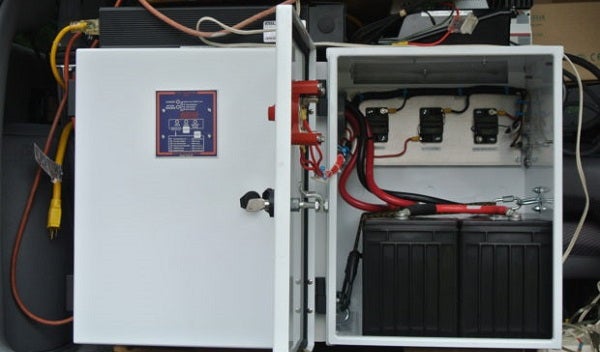Ruling clarifies solar tax credit’s scope for batteries

The federal government offers a non-refundable 30% tax credit based on your solar system’s purchased cost. As with much of tax law, what is included in “system” is complicated. One particularly murky area had been the extent to which battery systems could be included in the definition of “system” and therefore eligible for the tax credit. Earlier this month, the Internal Revenue Service released a private letter ruling (PDF) that indicated battery systems tied to solar are eligible for the 30% federal tax credit.
The ruling said that batteries are eligible for the credit as long as they only store electricity directly from the solar system. That is to say, you can’t use the battery to store grid-sourced electricity for later use and still receive the credit.
It is important to note that private letter rulings do not carry the effect of precedent. They are intended only to apply to a specific taxpayer’s request for clarification. That being said, the ruling is indicative of how the agency will assess these systems going forward.
“While the letter is not able to be used by others as a foundation for their deduction, there is little question in my mind that the battery issue is in full compliance with current law when the facts at hand are similar to those stated in the IRS letter,” said tax advisor Larry Fischel.
For this tax season, this credit can be recovered for systems placed in service before the end of 2017. This credit is covered under section 25D of the IRS code. The relevant sections are 25D(d)(2), 25D(e)(2), and 25D(d)8. The Federal Tax Credit for homeowners is scheduled to lower to 26% in 2020 and 22% in 2021. It is set to expire at the end of 2023.
Pairing solar with storage provides several benefits for homeowners. Solar + storage enables homeowners to have back-up power. This provides piece of mind should service from the electric grid go out. When the grid goes down, grid-connected solar systems automatically shut off. This is a safety mechanism to protect utility line workers who could be injured by solar-generated electricity while working to restore power.
But this back-up power can come at a steep premium. The cost of storage is prohibitively high for most consumers. The IRS clarification on the availability to use the solar tax credit for battery back up could help more homeowners add storage. For more information about battery storage click here.
